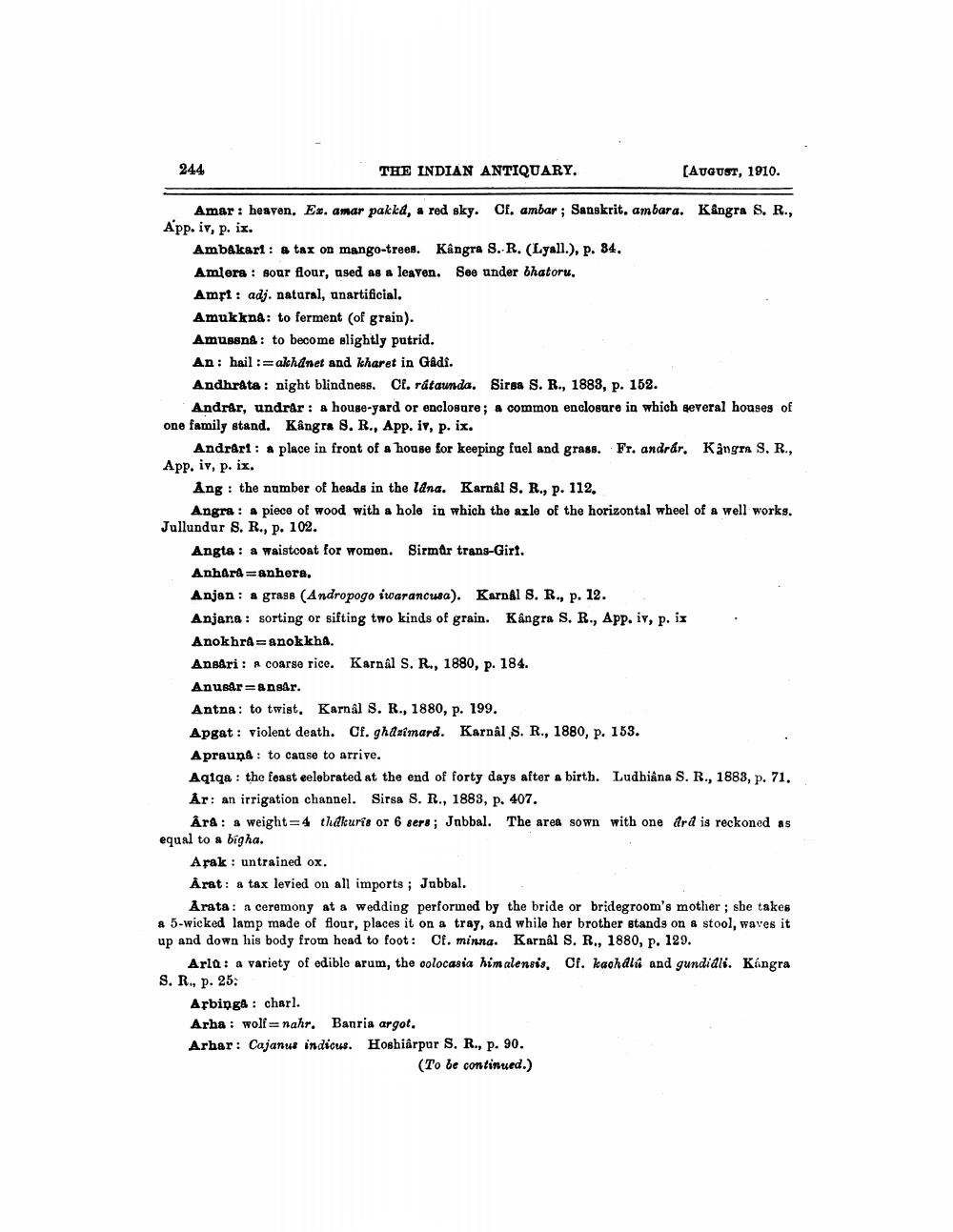________________
244
THE INDIAN ANTIQUARY.
[AUGUST, 1910.
Amar: heaven. Ex. amar pakka, a red sky. Cf. ambar; Sanskrit, ambara. Kangra S. R., App. iv, p. ix.
Ambakari: a tax on mango-trees. Kângra S.-R. (Lyall.), p. 34. Amlera sour flour, used as a leaven. See under bhatoru.
Amri: adj. natural, unartificial.
Amukkna: to ferment (of grain).
Amussna: to become slightly putrid.
An: hail: akhanet and kharet in Gâdî.
Andhrata: night blindness. Cf. rátaunda.
Sirsa S. R., 1883, p. 152.
Andrår, undrar: a house-yard or enclosure; a common enclosure in which several houses of one family stand. Kangra S. R., App. iv, p. ix.
Andrari: a place in front of a house for keeping fuel and grass. Fr. andrár. Kangra S. R., App. iv, p. ix.
Ang: the number of heads in the lana. Karnal S. R., p. 112.
Angra: a piece of wood with a hole in which the axle of the horizontal wheel of a well works. Jullundur S. R., p. 102.
Angta: a waistcoat for women. Sirmar trans-Girt.
Anhara anhera.
Anjan: a grass (Andropogo iwarancusa).
Karnal 8. R., p. 12.
Anjana: sorting or sifting two kinds of grain. Kangra S. R., App. iv, p. ix
Anokhra anokkha.
Ansari: a coarse rice. Karnal S. R., 1880, p. 184.
Anusar ansår.
Antna: to twist. Karnal S. R., 1880, p. 199.
Apgat: violent death. Cf. ghazimard. Karnâl S. R., 1880, p. 153.
Aprauna: to cause to arrive.
Aqiqa: the feast celebrated at the end of forty days after a birth. Ludhiana S. R., 1883, p. 71. Ar: an irrigation channel. Sirsa S. R., 1883, p. 407.
Ara: a weight=4 thakuris or 6 sers; Jubbal. The area sown with one ard is reckoned as equal to a bigha.
Arak untrained ox.
Arat: a tax levied on all imports; Jubbal.
Arata a ceremony at a wedding performed by the bride or bridegroom's mother; she takes
a 5-wicked lamp made of flour, places it on a tray, and while her brother stands on a stool, waves it up and down his body from head to foot: Cf. minna. Karnal S. R., 1880, p. 129.
Arla: a variety of edible arum, the colocasia himalensis, Cf. kachala and gundiali. Kangra S. R., p. 25:
Arbinga charl.
Arha: wolf nahr.
Banria argot.
Arhar: Cajanus indicus. Hoshiarpur S. R., p. 90.
(To be continued.)




